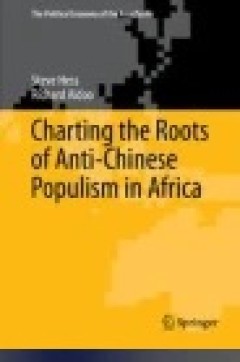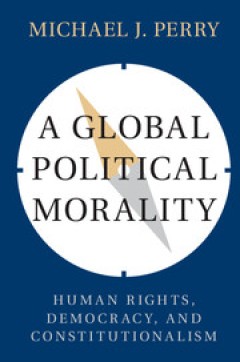Filter by

Charting the Roots of Anti-Chinese Populism in Africa
This book investigates China’s emergence as an outside player in SSA over the last several decades and the current understanding of the impact of Beijing’s growing presence on the continent, including several case studies focused on specific SSA countries. China’s accelerating economic and political engagement with sub-Saharan Africa (SSA) has gained growing attention in political and aca…
- Edition
- -
- ISBN/ISSN
- 978-3-319-17629-1
- Collation
- -
- Series Title
- -
- Call Number
- 337
Reforming Learning and Teaching in Asia-Pacific Universities
This book focuses on learning and teaching as the core business of higher education and explores reformative efforts in response to the influences of globalised processes in three advanced economies in the Asia-Pacific region: Japan, Hong Kong and Australia. This is a significant book as it adds to limited discussions on the globalisation of learning debates, and scholarly reflections on the li…
- Edition
- -
- ISBN/ISSN
- -
- Collation
- -
- Series Title
- -
- Call Number
- -

A Difficult Neighbourhood Essays on Russia and East-CentralEurope since Worl…
Through a series of essays on key events in recent years in Russia, the western ex-republics of the USSR and the countries of the one-time Warsaw Pact, John Besemeres seeks to illuminate the domestic politics of the most important states, as well as Moscow’s relations with all of them. At the outset, he takes some backward glances at the violent suppression of national life in the ‘bloodlan…
- Edition
- -
- ISBN/ISSN
- 9781760460617
- Collation
- -
- Series Title
- -
- Call Number
- -

Asian Yearbook of International Law, Volume 21 (2015)
The Yearbook aims to promote research, studies and writings in the field of international law in Asia, as well as to provide an intellectual platform for the discussion and dissemination of Asian views and practices on contemporary international legal issues. Readership: All interested in International Law and Asian Law.
- Edition
- -
- ISBN/ISSN
- -
- Collation
- -
- Series Title
- -
- Call Number
- -

A Guide to Diplomatic Practice
Recruited straight from university, Ernest Satow (1843–1929) became one of the most respected British diplomats, particularly in Japan, where he is still remembered. After a career spent mostly in the rapidly developing Far East, he retired in 1906. Just before the outbreak of war, he was asked to compile a work on international diplomacy, and 'Satow', as it has become known, was first publis…
- Edition
- -
- ISBN/ISSN
- 9780511995194
- Collation
- -
- Series Title
- Cambridge Library Collection - British and Irish History, General
- Call Number
- -

Global Austria
"After the dissolution of the Austro-Hungarian Monarchy, Austria transformed itself from an empire to a small Central European country. Formerly an important player in international affairs, the new republic was quickly sidelined by the European concert of powers. The enormous losses of territory and population in Austria’s post-Habsburg state of existence, however, did not result in a politi…
- Edition
- -
- ISBN/ISSN
- 9781608010622
- Collation
- -
- Series Title
- -
- Call Number
- -

India and Africa's Partnership: A Vision for a New Future
This book demonstrates the changing dynamics of India’s engagement with Africa, focusing on trade, investment, official development assistance, capacity building activities and the diaspora. It also examines its impact at the economic, political and societal levels with respect to governance, democratic structures, education and health. India has competitive edge of historical goodwill and it…
- Edition
- 1
- ISBN/ISSN
- 978-81-322-2618-5
- Collation
- XIV, 249
- Series Title
- India Studies in Business and Economics
- Call Number
- 330 IND

India and China in the Emerging Dynamics of East Asia
Though considerable research literature is now available on China–India relations, most of it still follows a conventional narrative, viewing the relationship through the narrow conflictual prism limited to South Asia than in the new, larger perspective, especially in the context of emerging East Asian dynamics. This book offers comprehensive analyses of some of these issues in papers address…
- Edition
- 1
- ISBN/ISSN
- 978-81-322-2137-1
- Collation
- XIII, 178
- Series Title
- -
- Call Number
- 330 IND

India's Emerging Energy Relations: Issues and Challenges
This book analyzes the role of energy in Indian foreign policy, particularly in defining bilateral relations. It also focuses on the critical gaps in conceptualizing its formulations and recommends a framework for sustainable energy security. India, the fourth largest consumer of oil, is an energy-deficit economy, importing more than eighty percent of its needs. This makes securing energy integ…
- Edition
- 1
- ISBN/ISSN
- 978-81-322-2502-7
- Collation
- IX, 188
- Series Title
- India Studies in Business and Economics
- Call Number
- 330 IND

A Global Political Morality Human Rights, Democracy, and Constitutionalism
In A Global Political Morality, Michael J. Perry addresses several related questions in human rights theory, political theory and constitutional theory. He begins by explaining what the term 'human right' means and then elaborates and defends the morality of human rights, which is the first truly global morality in human history. Perry also pursues the implications of the morality of human righ…
- Edition
- -
- ISBN/ISSN
- 9781316665701
- Collation
- -
- Series Title
- -
- Call Number
- -
 Computer Science, Information & General Works
Computer Science, Information & General Works  Philosophy & Psychology
Philosophy & Psychology  Religion
Religion  Social Sciences
Social Sciences  Language
Language  Pure Science
Pure Science  Applied Sciences
Applied Sciences  Art & Recreation
Art & Recreation  Literature
Literature  History & Geography
History & Geography